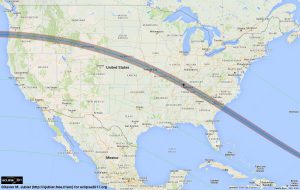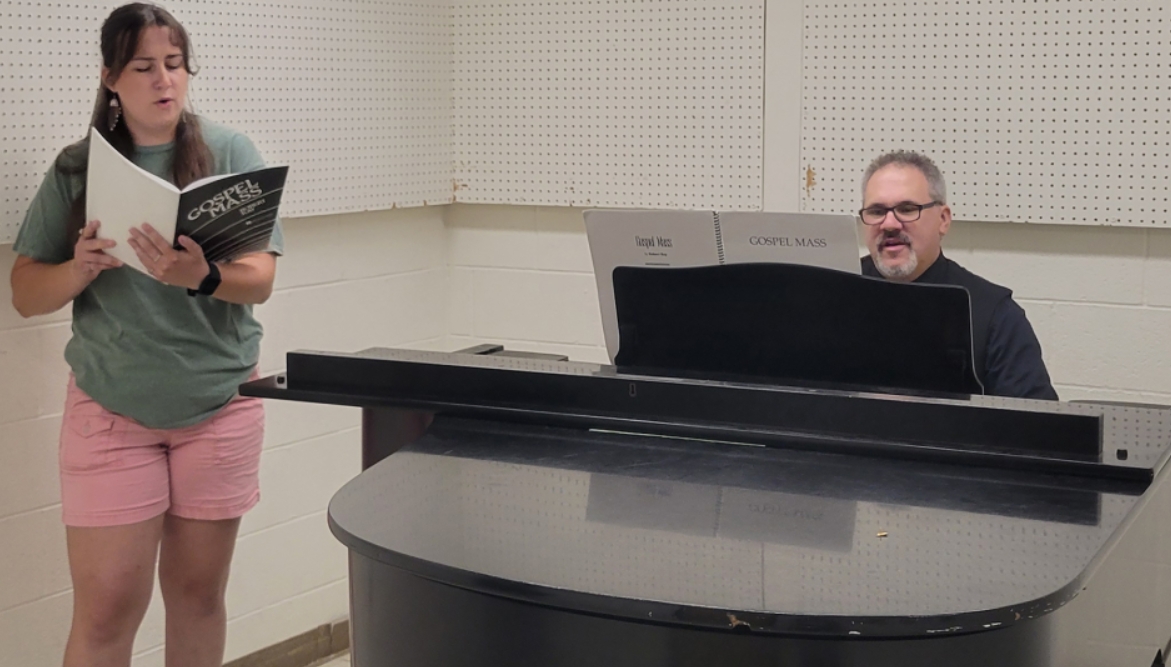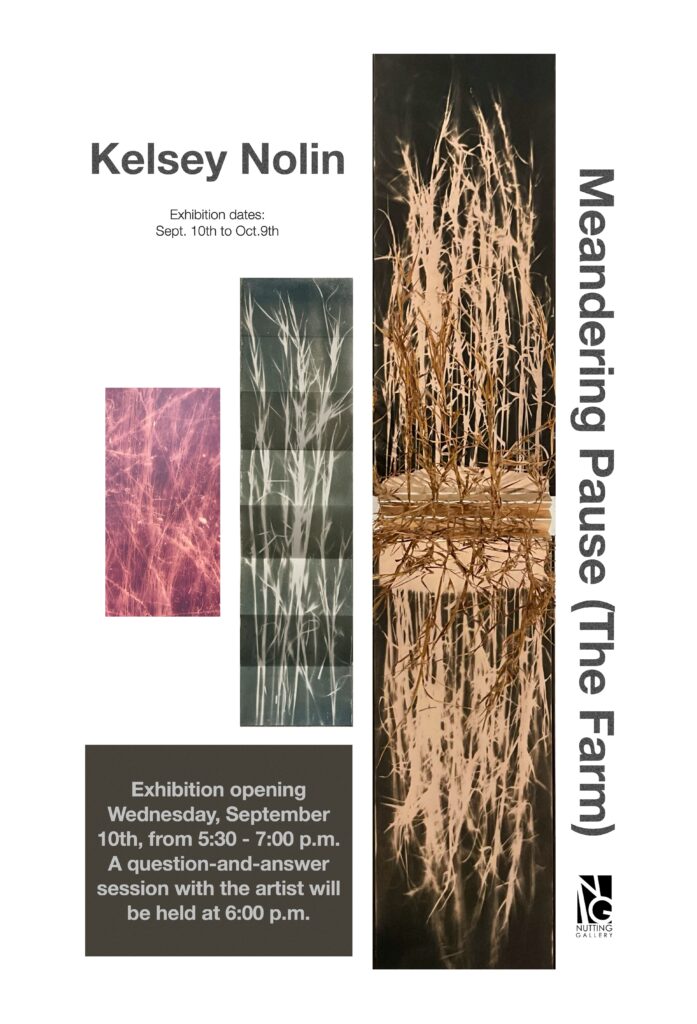By Chad Richards, Contributing Writer
Monday, Aug. 21 will mark the beginning of the new academic year, but it will also mark the day of quite possibly the biggest astronomical event in almost 100 years: a total solar eclipse across the United States.
While this eclipse is important, eclipses are a usual thing. This total solar eclipse happens when the moon completely obscures the sun, leaving only a bright ring, called the corona, visible. There are normally about two and five solar eclipses per year, but most fall over open ocean or remote areas and are never observed.
In the last 100 years, there have been 10 eclipses that have made landfall in the United States, with the most significant being the June 8, 1918 eclipse that was visible across the entire contiguous (Lower 48) United States.
 The path of totality (where the sun is completely obscured) entered just above Portland, Ore.; passed through Denver, Colo. before exiting off the east coast of Central Florida. The last to make any sort of landfall in the United States happened on Feb. 26, 1979.
The path of totality (where the sun is completely obscured) entered just above Portland, Ore.; passed through Denver, Colo. before exiting off the east coast of Central Florida. The last to make any sort of landfall in the United States happened on Feb. 26, 1979.
This eclipse will be visible to the entire population of the contiguous United states, making landfall through many major cities and making it likely one of the most witnessed total solar eclipses in recent history. The path of totality will enter in Oregon, cross through Kansas City and Nashville before exiting in South Carolina, as illustrated by the graphic. If you are not able to make it to the narrow band of totality; don’t worry, as you will still be able to view a partial solar eclipse throughout the entire United States.
 Vox has created an online tool for people to be able to see exactly what the eclipse will look like from their specific zip code. For example, in West Liberty’s zipcode (26074), the eclipse will begin around 1:09 p.m., with the peak of the eclipse coming at exactly 2:34 p.m. and 45 seconds when the moon covers 82.5 percent of the sun, as you can see in the graphic. While seeing this partial eclipse will be a spectacle, if you want to see the total eclipse and don’t mind traveling, you have some options.
Vox has created an online tool for people to be able to see exactly what the eclipse will look like from their specific zip code. For example, in West Liberty’s zipcode (26074), the eclipse will begin around 1:09 p.m., with the peak of the eclipse coming at exactly 2:34 p.m. and 45 seconds when the moon covers 82.5 percent of the sun, as you can see in the graphic. While seeing this partial eclipse will be a spectacle, if you want to see the total eclipse and don’t mind traveling, you have some options.
Many of the cities and towns in the path of totality are planning events to celebrate and watch the eclipse, but if you are in the Wheeling/West Liberty area and want to go somewhere to witness the spectacle, and have some fun, your best bet is Nashville, Tenn. It is right in the path and likely will not be obscured by clouds.
Hopefully you’re a fan of road-tripping, as flights to Nashville from Pittsburgh are around $400 or more to get there in time for the eclipse. Hotels in the city are likely booked to capacity in anticipation. But, if you can get there, the Music City will have several fun events to celebrate.
If you happen to miss this one or the clouds come in to spoil it, your next best chance will be on April 8, 2024. In fact, for this area, waiting for the 2024 eclipse may be the better option as the Wheeling area will see a 97.13 percent eclipse with Columbus, Ohio only two hours away seeing a 99.84 percent solar eclipse.
Finally, if you are interested in watching the solar eclipse from anywhere, there are some things you need to know. Looking at the sun directly with no eye protection will damage your eyes; an eclipse of any degree does not change this. That is why it is important to use solar filters, or eclipse glasses.
The glasses are to be used during the whole eclipse except during the brief period of totality when the moon completely covers the sun. If you are in an area outside the path of totality, you must use the eclipse glasses the entire time; this rune also applies to camera lenses and telescopes as the sun can damage the filters.
NASA’s eclipse website has more safety tips as well as a list of approved, reputable makers of safe eclipse glasses put together by the American Astronomical Society. If you want to look for yourself, be sure they are compliant with the ISO 12312-2 standard; if the glasses comply, they will be labeled with this. To test your glasses, put them on and you should only be able to see the sun. If not or if they are damaged, do not use them.
A solar eclipse is a rare event, so hopefully these tips and information allow you to enjoy this once in a lifetime event to the fullest.
Photo credits: Chad Richards, Vox and Eclipse2017.org







